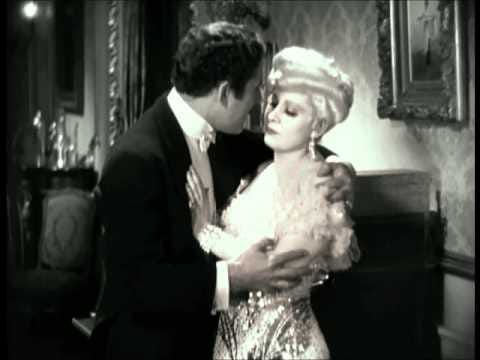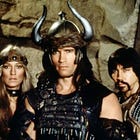Ok, musical introduction is over. Now we begin serious talk.
(Maybe not too serious.)
I suppose this . . . Rant? Incoherent babbling? Is a follow-up to this previous one:
Specifically this part:
. . . “But Lisa how do I escape the tropes,” you cry, tearing your hair out. “I need to be original!” There is no escape: everything is a trope, and tropes are narrative tools, but they should not be the thing that defines your novel. Every time I see one of those trope maps on Instagram with all the squiggly arrows pointing to a book cover I want to vomit. Also, there’s no such thing as original. Everything has been said. That’s OK, because it hasn’t been said by you.)
I repeat: it hasn’t been said BY YOU. The difference between original and hackneyed is if the author has trust in their voice or not.
If one were to actually stifle themselves creatively by getting hung up on “originality” instead of working on their voice, we would deny ourselves the very reason humans tell stories at all. We would have to come at our projects from a totally alien vantage. Or maybe you want to write a radio drama for a dolphin, using entirely clicks and whistles.
We tell stories because we are human. But we are also made more human because we tell stories. When we do this, we tap into an ancient power that makes us, and the world, more of who we are: a single race looking for reasons, searching for purpose, seeking to find ourselves.
— From a NYT article: “Why do we write stories?”
I was just having a conversation with my husband earlier today about how amazing it is that our brains are essentially the same as they have been for approx. 100000 years. It was a jokey sort of conversation, as we reminisced about early 2000s internet and sending our friends stuff to shock them like Tubgirl, Goatse, Cake Fart, etc etc. (No, I will not provide links here. Bunch of degenerates, yous.) And, laughing, I wondered what a medieval peasant would do to shock their friends in a similar way, because you know they would. If you doomscrolled too far today and saw absolutely bonkers shit, you KNOW people in the past had these, uh, notions in their head, they just didn't have the World Wide Web to share their brilliance. We—the 20th/21st Century We—didn’t invent the gross, nasty, heinous, or the fucked up. Just look at the Marquis de Sade. Read the poetry of John Wilmot. And people have always, always, enjoyed seeing the shocked faces of their friends when they’re surprised by a prank or when they’re disgusted by a rude joke. Especially if you got some sort of personality disorder that provides dopamine hits from this sort of silly shit.
Mae West’s lines were hilarious then and they’re hilarious now. Her archetype has existed for millennia. There were jokes like hers scrawled on the walls of Pompeii. When the aliens show themselves and turn us all into goo, dirty limericks will still remain sharpied inside portapotties.
Ok, more serious now.
Why do we study classics in school? Shakespeare was writing 500-ish years ago. If we couldn’t connect with his works, then what the hell would be the point?
One of the greatest feelings a reader gets is that of connection. The feeling of not being alone. Someone once suffered as you suffer. Loved as you loved. Laughed at the same things you laugh at.
For 100000 years.
The characters in Shakespeare still exist. They will always exist—until the microplastics in our brains outweigh the grey matter.
The Lord of the Rings is a classic for a reason.
The family dramas of the Icelandic Sagas.
Folk songs.
Arthurian legends.
Greek tragedies.
The Heroes Journey.
The Bible.
Handprints on rock walls.
Early in my attempts at taking my writing seriously, I worried over being “original” without understanding what that meant.
A couple years before I started writing the book that would become Pallas, I saw a clip of a nature doc about “zombie ants.” Ants infected with a variety of cordyceps fungus. I wanted to write a novel about this concept—and then the Last of Us game came out. It killed my want to write my idea, because I was too worried I would get accused of ripping off Last of Us, despite the fact my idea was actually quite different, but I lacked confidence. I stewed on it and stewed on it, but the idea in my head just wouldn't go away. My first draft of Pallas was vastly different from what it became (there were no mushrooms, even!) but it was terrible; I was so unhappy with it I let it sit for almost a year thinking I would never return to it.
But then I heard, on either a writing podcast or a YouTube video about the topic of “originality,” I don’t remember where it's from but it has stuck with me:
How many vampire books are out there?1
My cranium burst. A total mess on my keyboard. “Fuck it,” I said to my biowaste. “Write it.”
Yes, fungus has inspired plenty of horror and scifi books. But none of them were *my* book. So . . . I rewrote the book how I knew it should have been from the beginning.
I’m glad I did.
And I’m glad it’s in my authentic voice, which allows for a style uniquely its own, even compared to my other books.
Where we do have to be careful is where a piece might risk pastiche, or cliché. This can be prevented by reading widely.
If all you read is Lord of the Rings, and you think all fantasy spawned from Tolkien, not only are you wrong but you’re crushing your chance at finding your own voice. If people want to read Tolkien, they don't want dollar store Tolkien. They want the OG. If they want something similar, great, just make sure it’s Your Voice, because you must accept the fact that you are not Tolkien—you must be the best You, and your readers will be happy.
Fantasy gets a bad rap for how incestuous and tropey it tends to be. The problem comes from amateur writers not even knowing, or understanding, the potential of a novel: if you believe all there is to LOTR are elves and dwarves and shit, ignoring the depth of the characters etc, and as you go to write you think shallowly, you have no vision, no truth to share, and to make matters worse you think elves have to be depicted a certain way because Tolkien Did It, that's a problem.2
Read outside your comfort zone. Always push yourself to absorb as many varieties of books as possible. At least once, try reading a type of book you think you’ll hate. Never know, you might find a new favourite thing. Worst case, you'll know what you don’t like. Best case, you’re exposed to different styles, different voices, different story arcs, different types of characters, and these influences will shape your next work.
Using my own work as an example one more time, The Highwayman Kennedy Thornwick has been praised for it’s unique setting. A pseudo-18th century place is unusual in fantasy. A prison break isn’t super common. But I didn't set out to try for these things: I had characters in mind, and I’ve always loved 18th/early 19th century history and literature. The Romantic movement, Sturm und Drang, etc. I wanted to poke fun at some prison reform ideas of the Enlightenment and touch on the actual history of the justice system (but in a fantasy setting.) The history of real highwaymen, etc etc. All very nice, but the book is Character Driven. So, these things all came together, and now I have a “literary fantasy” that, and this isn’t just me saying it but what readers say, is original in many ways, and I’m incredibly proud of what I was able to pull off. The voice is all mine yet the narrative style3 is reminiscent of the era of literature that inspired me. With some extra cuss words. (That’s the character stuff. Ever talk to a criminal? If anything, I toned it down.4)
One day I was thinking about prison escape movies. Papillon, Cool Hand Luke, The Great Escape, etc, this niche subgenre of crime film. Then I wondered if there had ever been a “fantasy version” of this. Now, if you’ve read the novel you know it grew beyond that original thought experiment, like, a lot, but that was the first seed of idea, just like the zombie ants with Pallas.
Take your ideas and instead of worrying if it’s “original,” practice your craft, read widely, and tell a fucking good story the way only YOU can tell it. Avoiding a story because you’re too hung up on “original” is just another version of being timid. Stop being a pussy. Just write it and worry about the rest later. Fix it in post.
There’s nothing new under the sun. That’s why good stories are eternal.
My Substack is free, so if you like what I write and want to support me, I have books for sale:
“I love Retrofuture” Pallas [Amazon] [Kobo]
“Magic is allegory” The Highwayman Kennedy Thornwick [Amazon] [Kobo]
“Knight errant in space” The Ghosts of Tieros Kol [Amazon] [Kobo]
On my Substack: Pull Me Under “it’s technically isekai”
Sinners was a great movie, just released, big hit, and with a refreshing take on vampires that incorporates the familiar tropes with various other mythologies. Notably, the myths surrounding music, like Blues. And, the best part of the movie was the villain song. Bunch of vampires dancing to Rocky Road to Dublin. Fuck yes. Vampires might not be original, but what the writer did with them, and how everyone involved ran with it, was.
Listen, I love LOTR. But come on, guys. At least study the genre beyond LOTR. Tolkien was a big brain scholar for crap sake. He used the influences of his area of study to tell the story he needed to tell. And I promise he was well-read outside of what we now consider the fantasy genre.
One day I’ll discuss the difference between voice and style. Yes, there’s a difference.
The characters are where the connection happens. The rest is just where the characters live. They’re “people”—imaginary, yes, but still—and since I’m not here to write dolphin radio dramas, the characters need to be human, just like me, you, and that other guy. Where they live or the era shapes them, but it’s their actions and reactions that prove their “realness.” If you want to be “100% original,” your characters connect with no one, because, hate to break it to you, none of us are original either. Read my point about Shakespeare again.





"They will always exist—until the microplastics in our brains outweigh the grey matter." Likewise for the fictional characters I know best...
There’s two kinds of people: those who want to put everything in a tidy box and those who understand the universe is infinite and organic. My yard is full of cedar trees but no single one is alike.